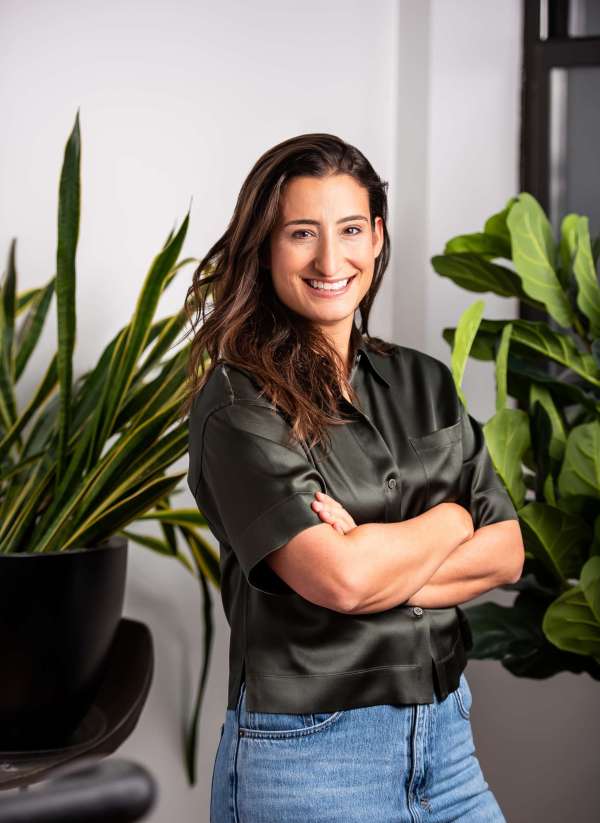I’m someone who believes that ripple effects can be powerful — that the smallest gesture or idea can, over time, lead to an outsized impact.
That’s a big part of why I love leading First Round’s New York office, a role I took on when I joined the investment team as a Partner in 2016. First Round was an early believer in New York’s tech ecosystem, and it’s been so exciting to invest in each increasingly large wave of companies built here. The idea of ripple effects is also why I’m fascinated by sectors that have a real-world impact, like healthcare, climate, supply chain and commerce — interests that have led me to make investments in incredible companies like Caper (acquired by Instacart), Mirror, SiteRX and Alma.
These companies, and the founders I work with, all have one thing in common: they’re tackling problems that the rest of the world either overlooked or assumed were unsolvable. And they’re taking on these non-obvious, hard challenges because they have the optimism, and the unshakeable belief, that one idea has the potential to make a significant positive impact.
That brings me to why I ended up at First Round in the first place. In all honesty, I never planned on becoming a full-time investor. I started off my tech career in the founder seat, as co-founder and co-CEO of Birchbox. I led the business through hypergrowth, taking it from a school project to a nine-figure revenue, category-defining household name with over a million monthly paid subscribers and a global team of over 200 employees. Along the way, I started angel investing and advising other founders, hoping to pay it forward and share some of my hard-earned lessons.
Between my own founder journey and my angel investing experience, I saw the impact that a small gesture — whether that’s making an introduction, asking the right question or offering well-timed advice — could have on a founder’s trajectory. First Round led Birchbox’s seed round and was a critical partner to me in my earliest days of founderdom, and having access to the community was a tailwind for me on my company-building journey.
Ultimately, the same desire to create change that brought me down the founder path is what led me to “going pro” as a venture investor next. I knew that being a seed-stage investor would be the best way for me to leverage my 0 to 1 founder experience to help other companies — and, naturally, First Round was the place where I wanted to take on that role.
After nearly a decade as an investor, I’ve thought a lot about what I can offer founders so that they as individuals can reach their full potential. What I’ve come to realize is that all founders are on twin journeys: one path is focused on cold, hard execution, which is where I love to roll up my sleeves and leverage the skills that made me a good founder in the first place: being extremely data-driven and having the tenacity to work through any problem.
The second path is filled with the more emotional aspects of company-building like relationships, feelings and mindset. I’m equally comfortable engaging on both planes. My most rewarding moments working with founders have been the quick texts that turn into late-night phone calls to unpack timely news or for them to confide in me about the messy parts of their journeys. Whether it’s on the investor side or the founder side, I think being able to balance both of these aspects of company building is critical.
When I reflect back on my time in this space, my proudest achievement doesn’t have anything to do with returns or revenue milestones: It’s the virtuous cycle of company creation. Over a dozen people I worked with a decade ago during the earliest days at Birchbox are now venture-backed founders themselves, having gained the confidence and know-how to solve their own set of important problems and grow their own teams. If I can fund more companies that create similar positive ripple effects, I’ll consider my work here a success.

